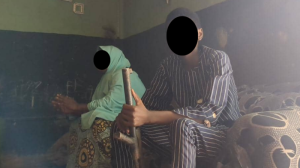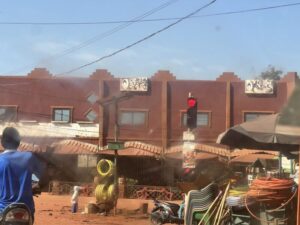Addressing participants at the opening of the training, Editor-in-Chief, Solacebase online, Abdullateef Abubakar Jos said the capacity-building sessions aim to empower journalists with requisite technology with the methodology of tracking funds, transparency in the use of resources, investigating and ensuring the effectiveness of primary health care in the country with the aim of reducing child and maternal mortality, in line with Sustainable Development Goals (SDGs) no 3, which emphasizes good health and well being.
With this training, journalists would be equipped with modern investigative reportage skills to collaborate with Civil Society Organizations and other stakeholders to check government spending, human resources distribution and availability of primary health care in rural communities.’’
In a virtual presentation, Vice-Chancellor, Federal University Kashere, in Gombe State and President, Association of Communication Scholars & Professionals of Nigeria, Prof. Umaru Pate who dwelt much on Safety and Security for investigative reporters explain the essence of economic security, legal security, job security and physical security among others noting that caution should be adopted by journalists to protect themselves while carrying out their responsibilities.
Ojetunde Damilola, of Organised Crime and Corruption Project, Abuja, in his presentation titled ‘’Data Journalism and Tapping Sources for Investigative Reporting’’ highlights sources of information and the use of modern tools to support reporters in the course of reportage.
Also, Dr Rukayya Aliyu, of Faculty of Communications, Bayero University Kano, in a paper titled ‘’Ethical consideration in reporting Primary Health Care, in rural Nigeria encouraged journalists to abide by ethics even when conducting investigative reportage in rural areas.
Other resource persons such as Haruna Muhammad, Editor-in-Chief, Wikkitimes online from Bauchi, had a presentation titled, Open Source Intelligence Method of Investigation, while Executive Director, Centre for Awareness on Justice and Accountability, Kabiru Saidu Dakata presentation was titled ‘’Role of Media in Strengthening Procurement Process as the best way to track PHCs projects’’ and Kano Station Manager, Freedom Radio, Ado Saidu Warawa, presentation centred on ‘’ Working with Data, Making Your Story Credible’’.
Participants were drawn from print, electronic and online media.
Source: Solacebase



